Publications
Articles, publications, books, tools and multimedia features from the U.S. Institute of Peace provide the latest news, analysis, research findings, practitioner guides and reports, all related to the conflict zones and issues that are at the center of the Institute’s work to prevent and reduce violent conflict.
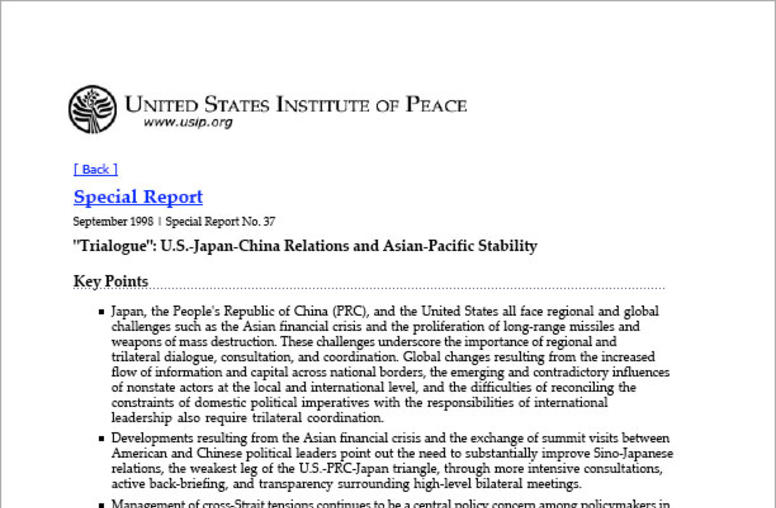
"Trialogue": U.S.-Japan-China Relations and Asian-Pacific Stability
The exchange of summits between the leaders of the People's Republic of China and the United States, the Asian financial crisis, and the decision by India and Pakistan to engage in nuclear testing have redirected the security agenda of the Asia-Pacific region. Such developments underscore the ongoing difficulties inherent in the transition from traditional approaches to security defined by the Cold War to a post-Cold War structure of international relations in the Asia-Pacific.
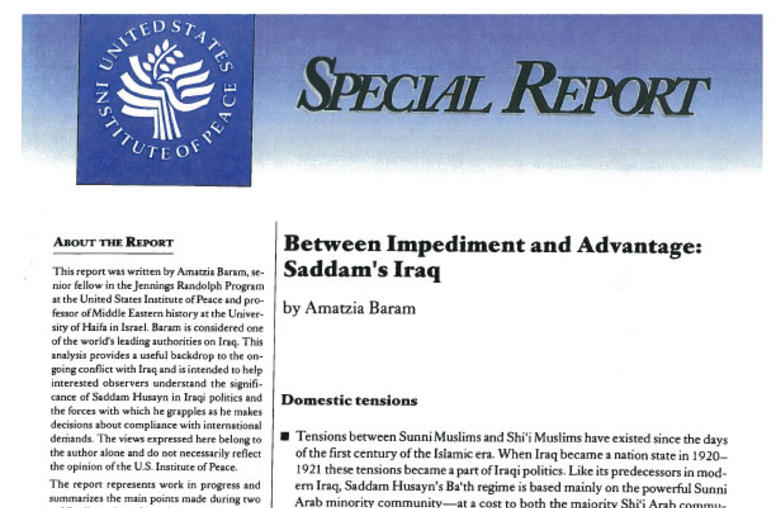
Between Impediment and Advantage: Saddam's Iraq
The report represents work in progress and summarizes the main points made during two public discussions about the nature of domestic politics in Iraq under Saddam. This analysis provides a useful backdrop to the ongoing conflict with Iraq and is intended to help interested observers understand the significance of Saddam Hussain in Iraqi politics and the forces with which he grapples as he makes decisions about compliance with international demands.
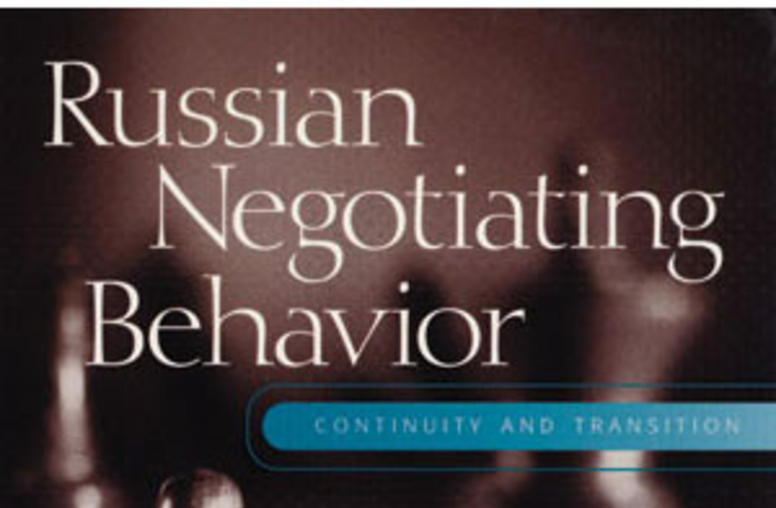
Russian Negotiating Behavior
Whether bargaining for strategic arms reductions, rights to drill Siberian oil fields, or an apartment in Moscow, Americans are faced across the table by a distinct Russian negotiating style.
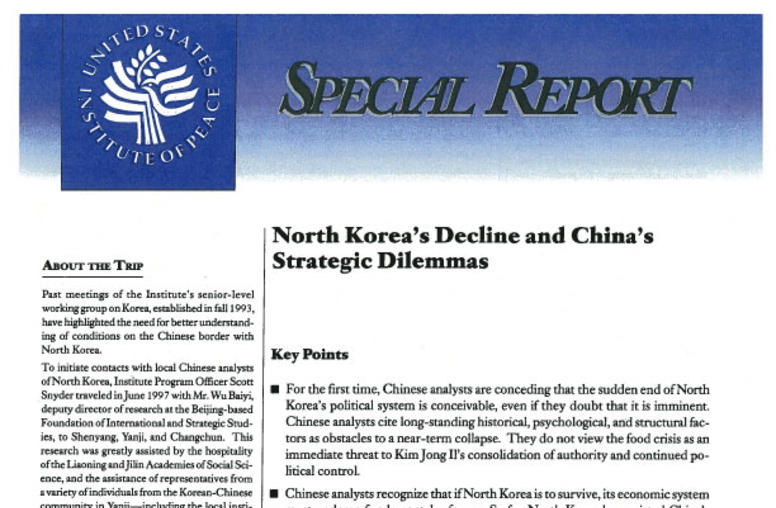
North Korea's Decline and China's Strategic Dilemmas
For the first time, Chinese analysts are conceding that the sudden end of North Korea's political system is conceivable, even if they doubt that it is imminent. Chinese analysts cite long-standing historical, psychological, and structural factors as obstacles to a near-term collapse. Chinese analysts recognize that if North Korea is to survive, its economic system must undergo fundamental reforms.
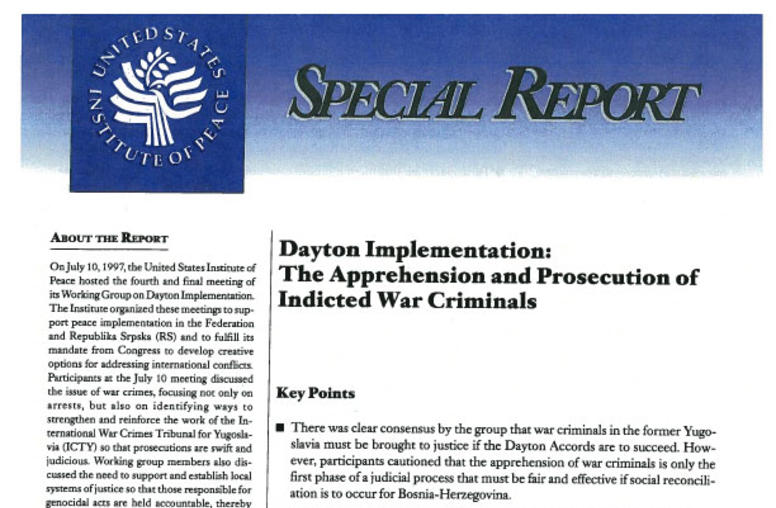
Dayton Implementation: The Apprehension and Prosecution of Indicted War Criminals
On July 10, 1997, the United States Institute of Peace hosted the fourth and final meeting of its Working Group on Dayton Implementation. The Institute organized these meetings to support peace implementation in the Federation and Republika Srpska (RS). Participants at the July 10 meeting discussed the issue of war crimes, focusing not only on arrests, but also on identifying ways to strengthen and reinforce the work of the International War Crimes Tribunal for Yugoslavia (ICTY) so that pro...
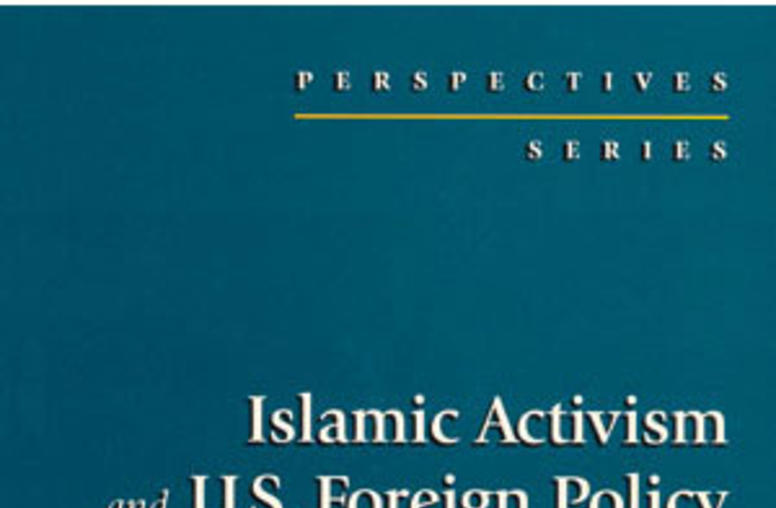
Islamic Activism and U.S. Foreign Policy
For many in the West, political violence in Algeria, the Middle East, and elsewhere has come to symbolize the threat of “Islamic activism.” Terrorist attacks such as the bombing on the World Trade Towers have solidified this view. Western governments, however, must deal with the challenge of extremism in the broader context of their relations with diverse states with contrasting histories, geographies, and peoples.
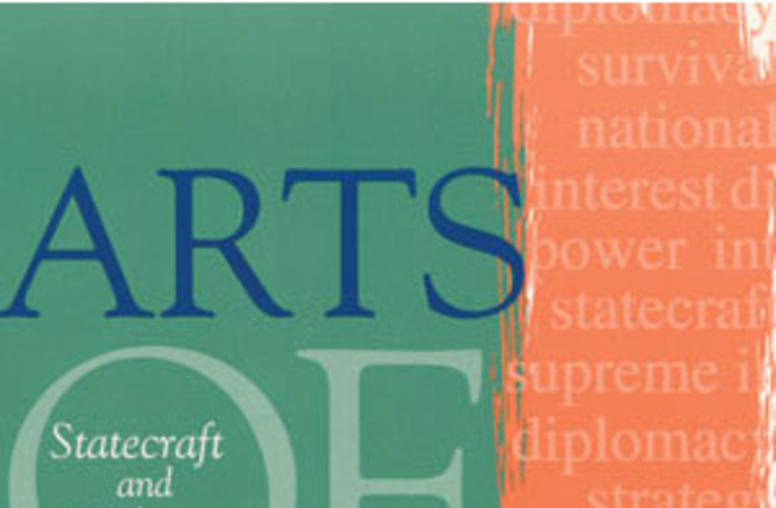
Arts of Power
In this comprehensive treatment, distinguished diplomat Chas Freeman describes the fundamental principles of the art of statecraft and the craft of diplomacy.
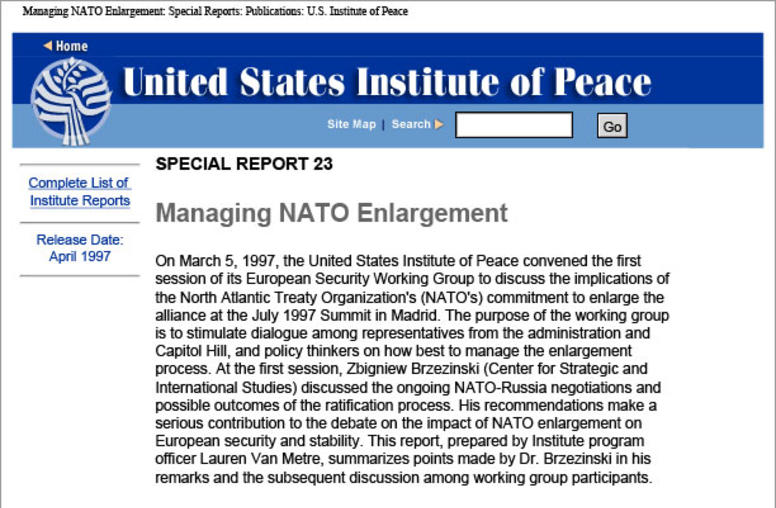
Managing NATO Enlargement
On March 5, 1997, the United States Institute of Peace convened the first session of its European Security Working Group to discuss the implications of the North Atlantic Treaty Organization's (NATO's) commitment to enlarge the alliance at the July 1997 Summit in Madrid.
The Internet, Transnational Networking and Regional Security in South Asia
Analysts have raised the possibility of increased turbulence in the world system as the flow of information becomes democratized, as information becomes broadly available outside previously narrowly defined areas of expertise, and hence, as hierarchies tumble. Others have focused on the impact on military security of the increasingly sophisticated means available to both rival states, as well as groups that challenge states, for changing and disrupting the flows of information and the informa...
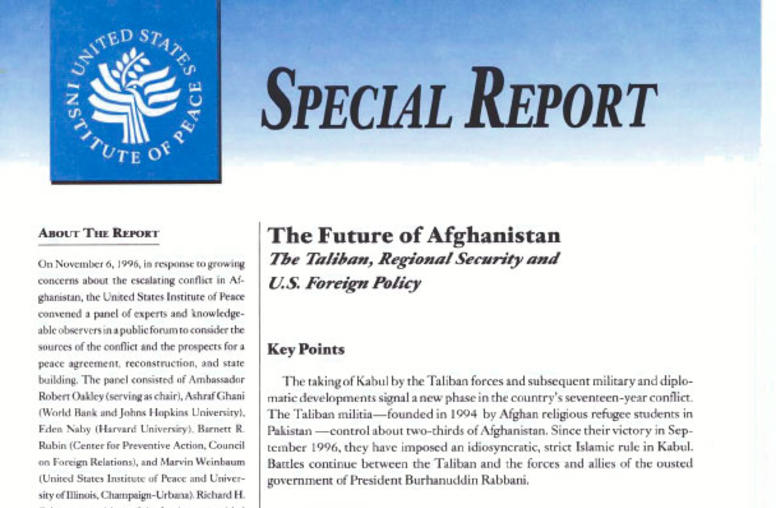
The Future of Afghanistan: The Taliban, Regional Security and U.S. Foreign Policy
In response to growing concerns about the escalating conflict in Afghanistan, the United States Institute of Peace convened a panel of experts and knowledgeable observers in a public forum to consider the sources of the conflict and the prospects for a peace agreement, reconstruction, and state building.